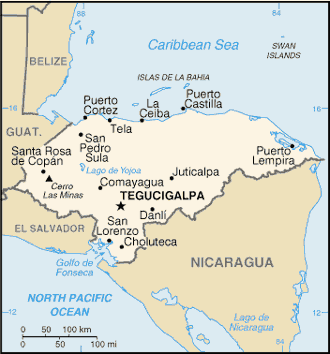Honduras is reporting an increase in dengue fever this year following a lengthy rainy season, according to the international medical humanitarian organization Doctors Without Borders/Médecins Sans Frontières (MSF).

MSF says 81 percent of the 789 people treated for severe dengue since the beginning of the year across the north of the country have been children 15 years or younger.
In San Pedro Sula, 12 people have died from dengue fever at the Mario Catarino Rivas Hospital. About half the patients with severe dengue at the hospital were children.
Dengue fever is an infectious disease carried by mosquitoes and caused by any of four related dengue viruses. This disease used to be called “break-bone fever” because it sometimes causes severe joint and muscle pain that feels like bones are breaking.
People get the dengue virus from the bite of an infected Aedes mosquito. It is not contagious from person to person.
There are three types of dengue fever in order of less severe to most: the typical uncomplicated dengue fever, dengue hemorrhagic fever (DHS) and dengue shock syndrome (DSS).
- Measles deaths top 1,100 in Madagascar
- Myanmar reports measles death, Measles vaccination campaign in Yangon
- Thailand: Chikungunya cases up 500 in past week, nearly 10,000 dengue cases reported in 2019
- Kentucky reports 44th hepatitis A death as lawmakers look at response
- Additional measles cases reported in Texas, Washington
- Brooklyn: An additional 25 measles cases reported
- Possible measles exposure at LAX
- Philadelphia DOH: 19 mumps cases part of the Temple outbreak

